Are you ready to take the next step towards achieving your fitness goals? In today's fast-paced world, finding the right personal training service can make all the difference in maximizing your results and keeping you motivated. Our personal training service agreement outlines everything you need to know about your journey with us, from tailored workout plans to progress tracking. So, let's dive in and explore how we can help you unleash your full potential!

Client and Trainer Information
The personal training service agreement establishes a professional relationship between the client and the trainer, detailing expectations and responsibilities. The client, aged 30, living in New York City, seeks to improve physical fitness through structured workouts. The trainer, certified by the National Academy of Sports Medicine (NASM) and based in Manhattan, specializes in strength training and nutrition. This agreement outlines the session frequency, duration, and payment terms, ensuring clarity in scheduling and financial commitments. Client information will include contact details and fitness goals, while trainer credentials will list relevant experience and specialties to foster trust and accountability throughout the training journey.
Scope of Services and Goals
The personal training service agreement outlines comprehensive services designed to enhance fitness and well-being. Services include customized workout plans tailored to individual fitness levels, nutritional guidance emphasizing optimal health, and regular assessments to track progress effectively. Goals encompass improving cardiovascular health (measured via VO2 max), increasing muscular strength (targeting specific lifts like squats and deadlifts), and enhancing flexibility (assessed through range of motion tests). The training sessions, conducted at designated fitness centers, aim for measurable outcomes such as weight loss (targeting specific pounds), muscle gain (defining a percentage increase), and overall lifestyle changes that foster long-term health benefits.
Payment Terms and Schedule
Payment terms for personal training services typically include specific conditions outlining the fee structure, payment methods, and scheduling of payments. Clients may be required to pay upfront for a predetermined number of sessions or on a monthly basis. Often, options such as credit card payments, bank transfers, or cash are acceptable. In many agreements, there may also be clauses regarding late payment penalties or discounts for advance payments, which can incentivize timely financial commitments. The schedule can specify whether sessions are weekly, bi-weekly, or flexible, depending on both the trainer's availability and the client's preferences, ensuring clarity on the duration and frequency of workouts.
Cancellation and Rescheduling Policy
Cancellation policies are essential in personal training service agreements to ensure clarity and mutual respect between trainers and clients. Clients must provide at least 24 hours' notice for cancellations to avoid a fee typically equivalent to the session rate, which can vary widely--often ranging from $50 to $150 depending on the trainer's experience and location, such as New York City or Los Angeles. Rescheduling appointments also require 24 hours' notice; failure to comply may incur additional charges or loss of the session. This policy helps trainers manage their schedules effectively while accommodating clients' needs. Repeat violations could lead to stricter terms, highlighting the importance of adherence to the agreed-upon conditions.
Liability and Waiver Agreement
Personal training services often necessitate a Liability and Waiver Agreement to protect both the trainer and client during physical activities. This agreement typically emphasizes acknowledgment of the inherent risks associated with various exercises, such as strength training and high-intensity interval training (HIIT), particularly in environments like gym facilities or outdoor settings. Clients must typically confirm they have disclosed all relevant health information, including pre-existing conditions such as cardiovascular issues or joint problems. The liability clause usually stipulates the trainer's exemption from liability for injuries occurring during training sessions, which can be essential in mitigating potential legal disputes. Additionally, the waiver may require clients to recognize their responsibility for personal safety and adherence to guidelines provided by the trainer, ensuring a secure training experience.

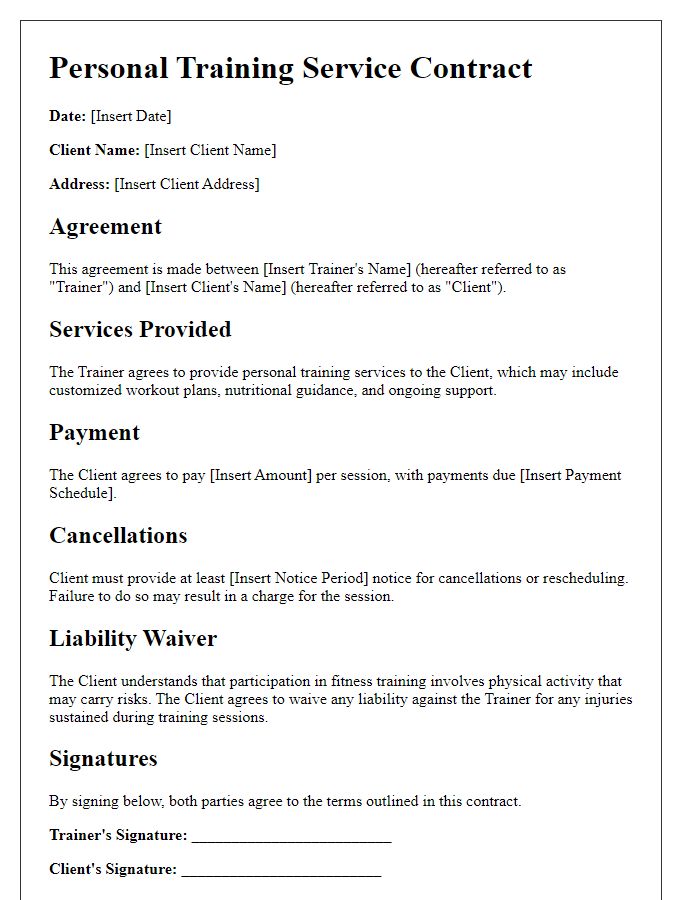
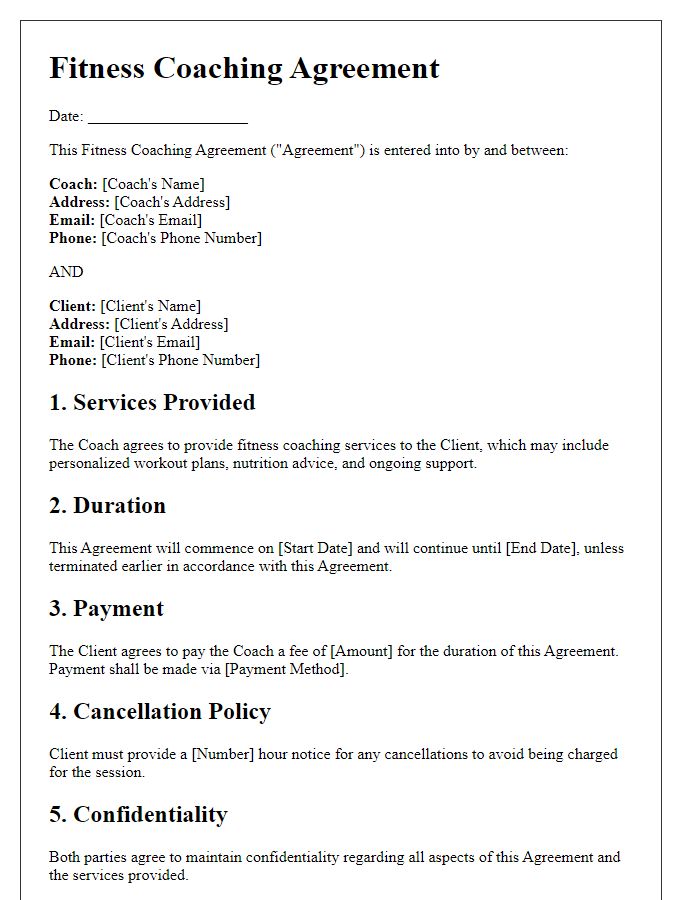
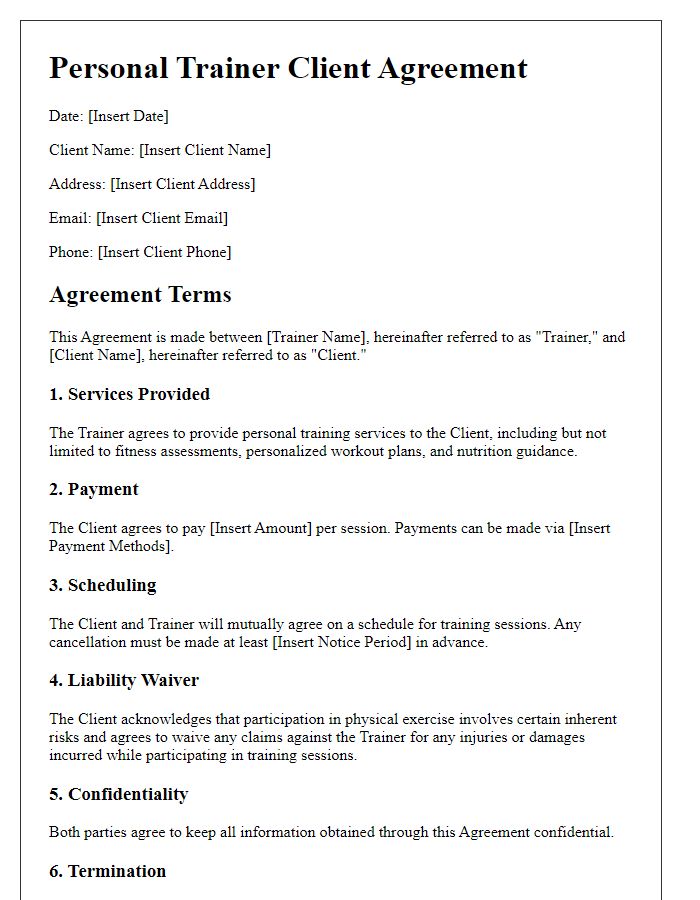
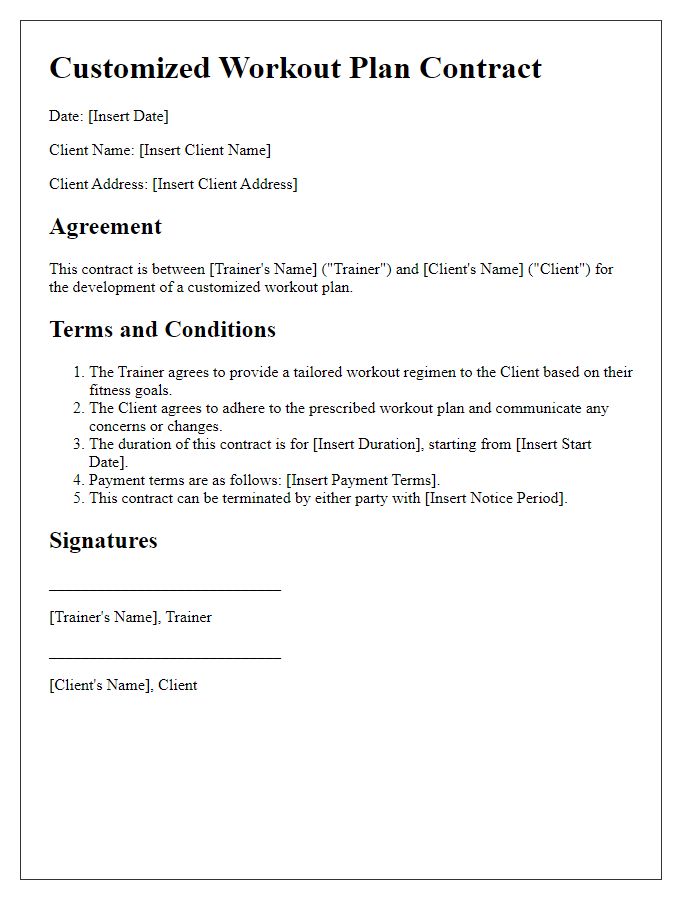
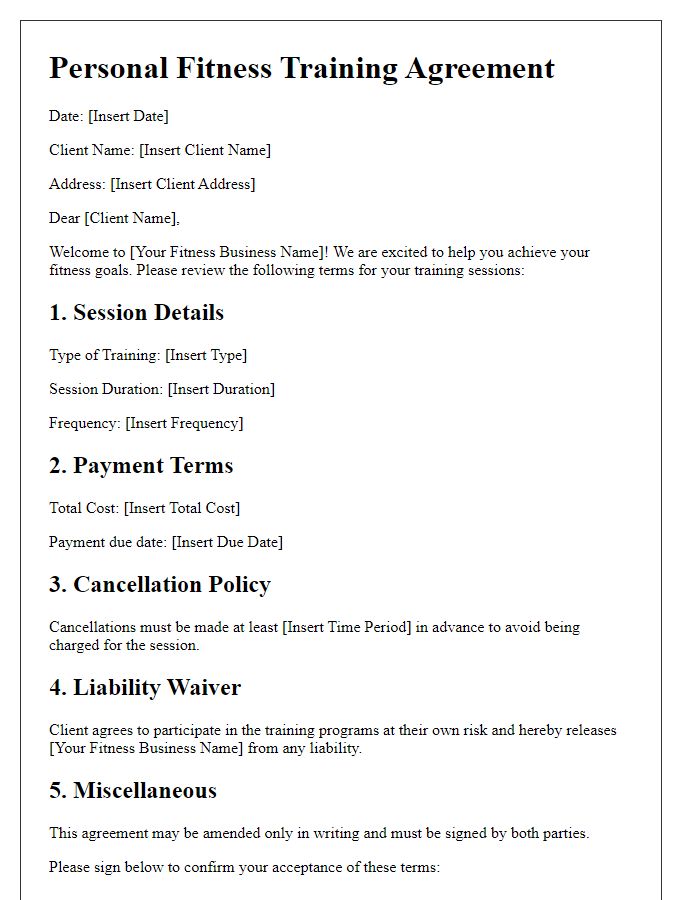
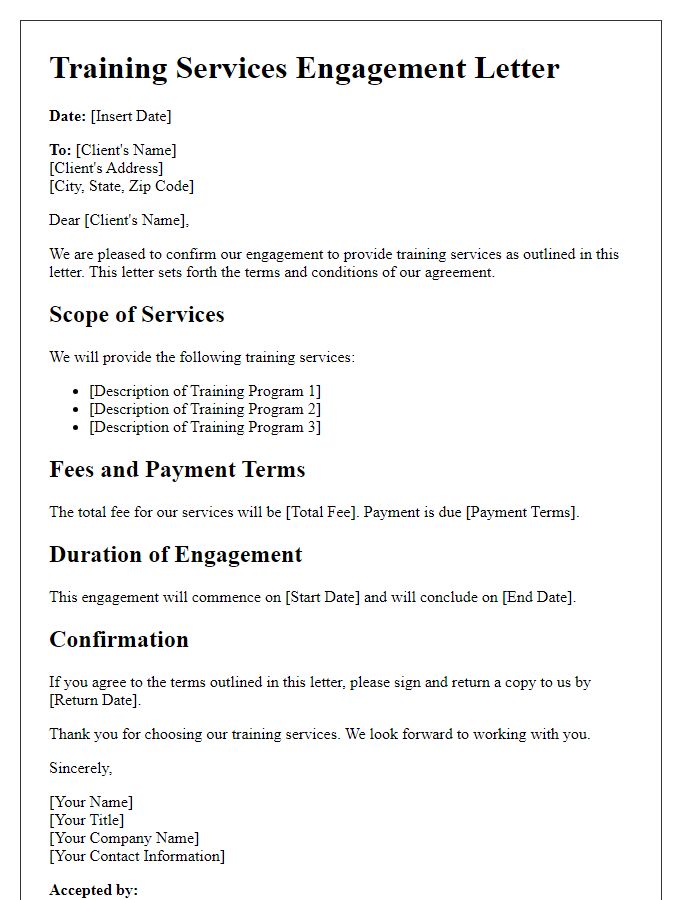
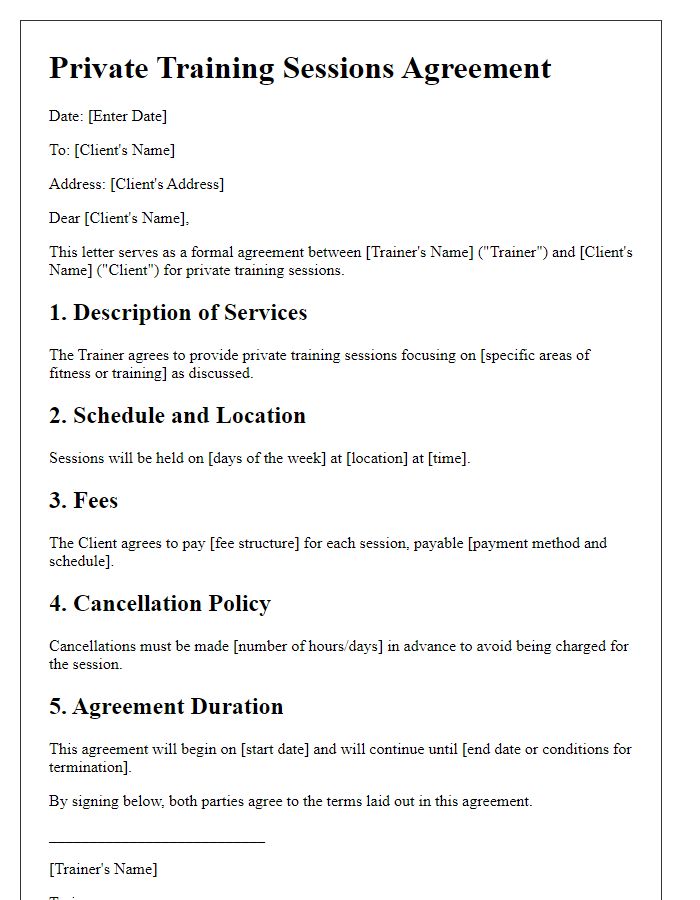
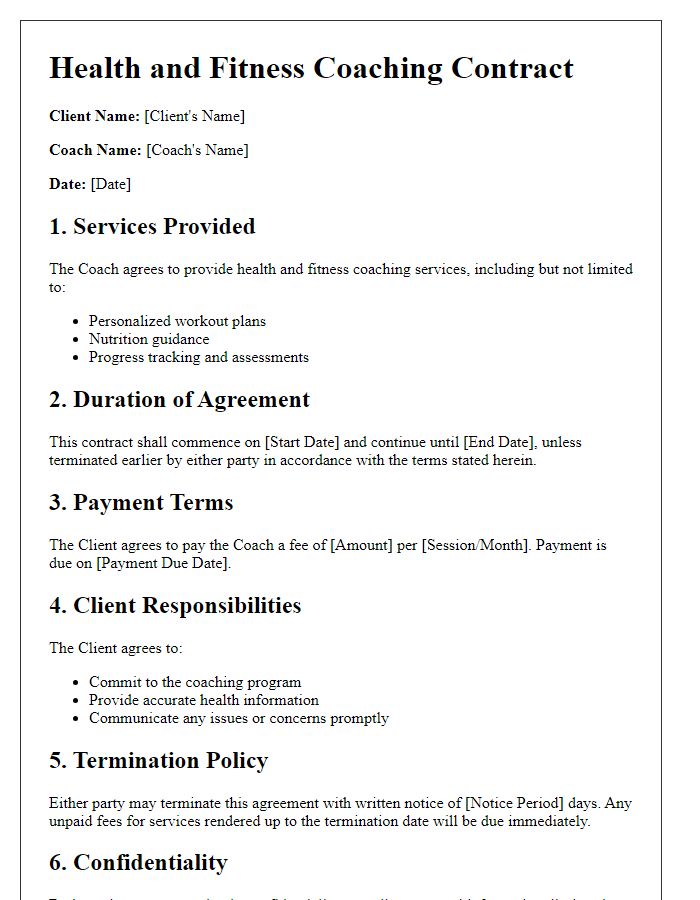
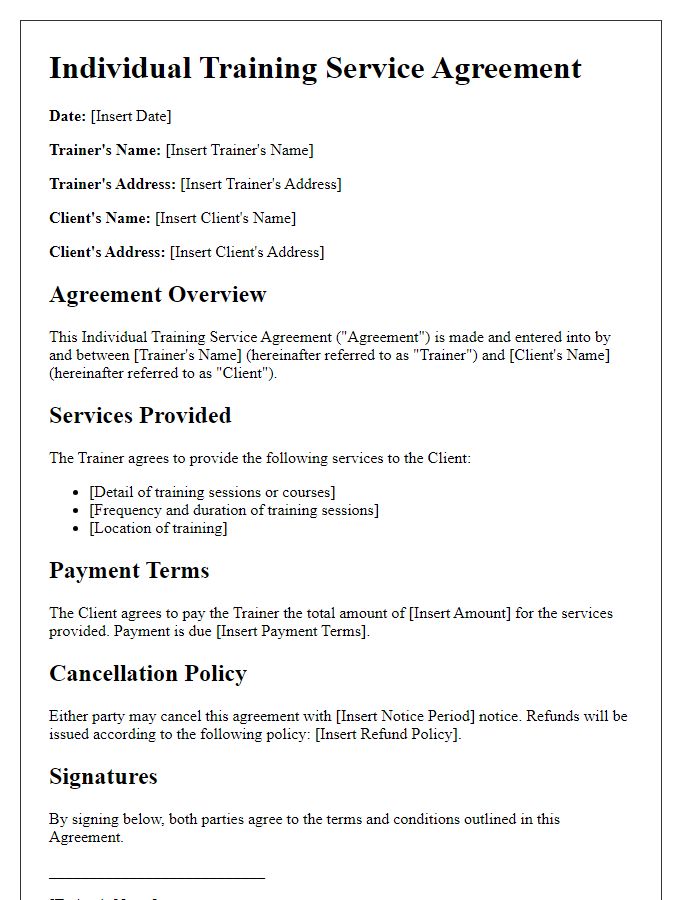
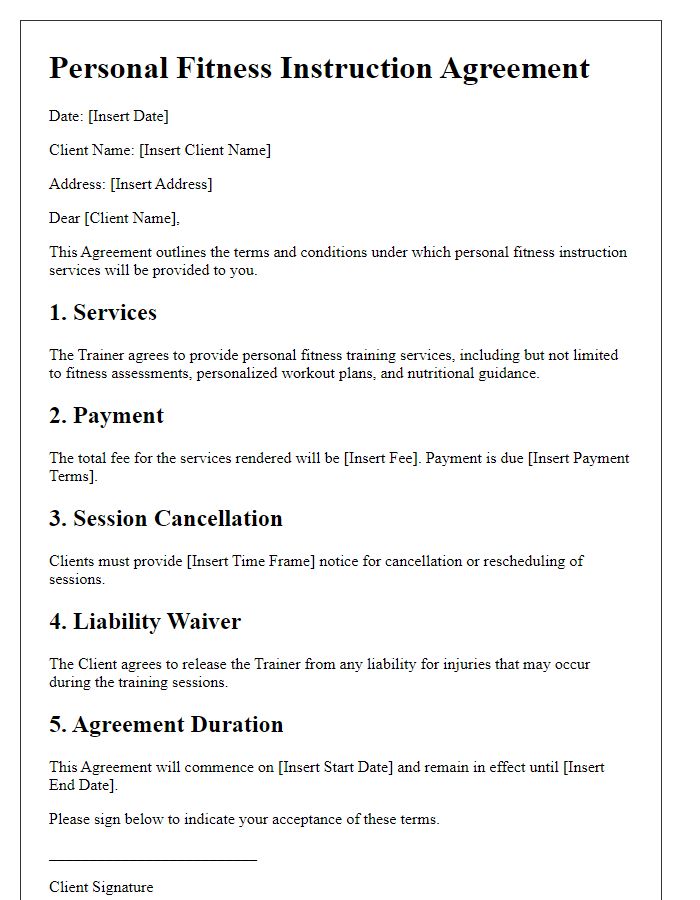


Comments